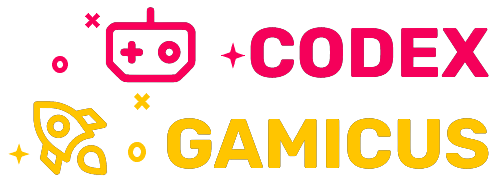Template:Infobox Defunct Company
Imagic was a third-party maker of games for the Atari 2600, and other early video game consoles in the early 1980s. It was co-founded in 1981 by former Atari, Inc. programmer Rob Fulop,[1][1] the author of Night Driver and Missile Command,[1] and its best-selling titles included Atlantis, Cosmic Ark, Demon Attack,[2] and billiards game Trick Shot. Other co-founders with Fulop were Bill Grubb, Bob Smith, Mark Bradley and Denis Koble from Atari,[1] and Jim Goldberger and Brian Dougherty from Mattel. Imagic was considered one of the best Intellivision developers thanks to unique video games like Cosmic Ark and Atlantis.[citation needed] By the end of the 2600's life, Imagic had the third largest collection of original game cartridges for the system, behind only Atari and Activision.[citation needed]
Comparison with Activision[ | ]
Imagic's cartridges were easily recognizable due to their peculiar shape.
Imagic was similar to Activision in many ways; they used a distinctive and easily recognizable style of cartridge housing (which included the company name embossed in the plastic), offered patches to players who sent in proof of a high score, and were renowned in the Atari community for featuring a high standard of audiovisual design in their games. Also like Activision, they were sued by Atari; the industry giant sued Imagic over Demon Attack because of its resemblance to Phoenix,[3] to which Atari had the exclusive home-version rights. The case was settled out of court, and Demon Attack went on to be ported to more consoles and home computers than any other game of its time.[citation needed] Unlike Activision, who had a policy that games should look/play the same on all consoles, Imagic believed that games should take advantage of a console's strengths.[citation needed]
Fan club[ | ]
During its height, Imagic also ran a fan club for their games, the Numb Thumb Club, which published an annual newsletter.[4] Only two issues were published before Imagic's demise in 1983.[4]
Unreleased games[ | ]
Several prototypes of unreleased Imagic games have been discovered in recent years by gamers; probably the most famous of these is Cubicolor, a two-player puzzle game loosely based on a combination of a Rubik's Cube and "fifteen puzzle", that was completed but never officially released before Imagic's demise. Approximately 60 cartridges exist and most are signed and numbered by the original programmer. Cubicolor is one of the most rare and valuable games for the Atari 2600.
Non-Atari releases[ | ]
Imagic also released games for the Mattel Intellivision, ColecoVision and Magnavox Odyssey². Their two Odyssey² games (ports of Demon Attack and Atlantis) were the only third party releases for that system in America. Unusual for a video game publisher of this time, Imagic's Intellivision library relied more on original games (Beauty & the Beast, Dracula, Microsurgeon, Truckin', Ice Trek) than Atari ports, and even their ports were generally more advanced, both graphically and in terms of gameplay, than their Atari counterparts.
Copyright issues[ | ]
Atari tried to sue Imagic claiming that Imagic's Demon Attack game was a copy of Centuri Inc.'s arcade game Phoenix.[2]
Demise[ | ]
Although Imagic grew quickly in its early years, it was irreparably harmed by the video game crash of 1983. It released 24 titles before going out of business by 1986, but the exact time it disbanded remains largely a mystery, however in 1983 they did layoff 40 of their 170 employees.[5] The rights to Imagic's most popular titles have been owned by Activision since the late 1980s, and they have been re-released on several occasions.
Notable titles[ | ]
- Atlantis
- Beauty & The Beast
- Cosmic Ark
- Demon Attack
- Dragonfire
- Fathom
- Fire Fighter
- Laser Gates
- Microsurgeon
- Moonsweeper
- Nova Blast
- Riddle of the Sphinx
- Safecracker
- Star Voyager
- Tournament Tennis
- Trick Shot
- Truckin
- Wing War
References[ | ]
- ↑ 1.0 1.1 1.2 Playing Catch Up: Night Trap's Rob Fulop. Gamasutra. CMP. Retrieved on 2007-04-09
- ↑ Demon Attack. Atari Age. Retrieved on 2007-04-09
- ↑ Demon Attack: This game is pure Imagic!. Atari Times. Retrieved on 2007-04-10
- ↑ 4.0 4.1 Imagic Titles for Intellivision. Intellivision Lives. Intellivision Productions. Retrieved on 2007-04-09
- ↑ Imagic Layoffs
Swords and Serpents
